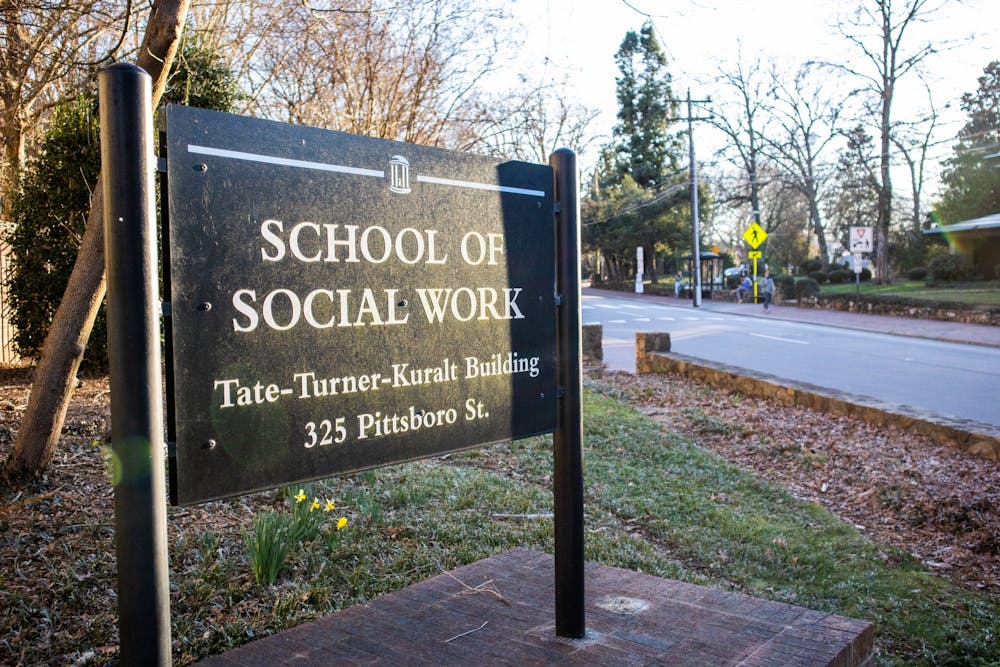The UNC School of Social Work’s Family and Children’s Resource Program (FCRP) is supporting social workers beyond the UNC community.
Established in the early 1990s, FCRP encourages social work organizations to increase their positive impact on the families and communities they serve. The program offers training courses and practice-improvement coaching for social workers and facilitates conversations about challenges in the field.
“I think overall we're really wanting to support a more resilient human services workforce,” Laura Phipps, FCRP director, said. “That's our biggest goal. Because I just feel like there's so little support for the people doing the hardest jobs right now.”
FCRP delivers resources to social work organizations that request their assistance. They offer both in-person and online courses for human services professionals, parents, educators and others taught by experienced trainers and experts. The training covers topics like behavior management, substance use and more.
“We rely on feedback from the frontline to us to say what you need. They rely on us to take research information and disseminate it in a way that they can apply it given the resources that they have,” Rodney Little, clinical assistant professor at the School of Social Work and training specialist, said. “So, it's definitely this constant dialogue back and forth that we need to improve the system so families benefit from it and don't get stuck in the system.”
As a former frontline social worker, Little enjoys maintaining the positive impact social workers can have on children and families.
FCRP partners with organizations like the Family Focused Treatment Association and the Foster Family Alliance of North Carolina to best serve children and families across the state through the social workers they train.
“The participants we train are the people that touch the families, not us,” Little said. “So, it's our responsibility to make sure that the information we give them is going to help change lives because we don't get that opportunity.”
The resource program aims to provide social workers with the tools they need to properly serve their communities. They value keeping social workers "trauma-informed" and improving their practices.



